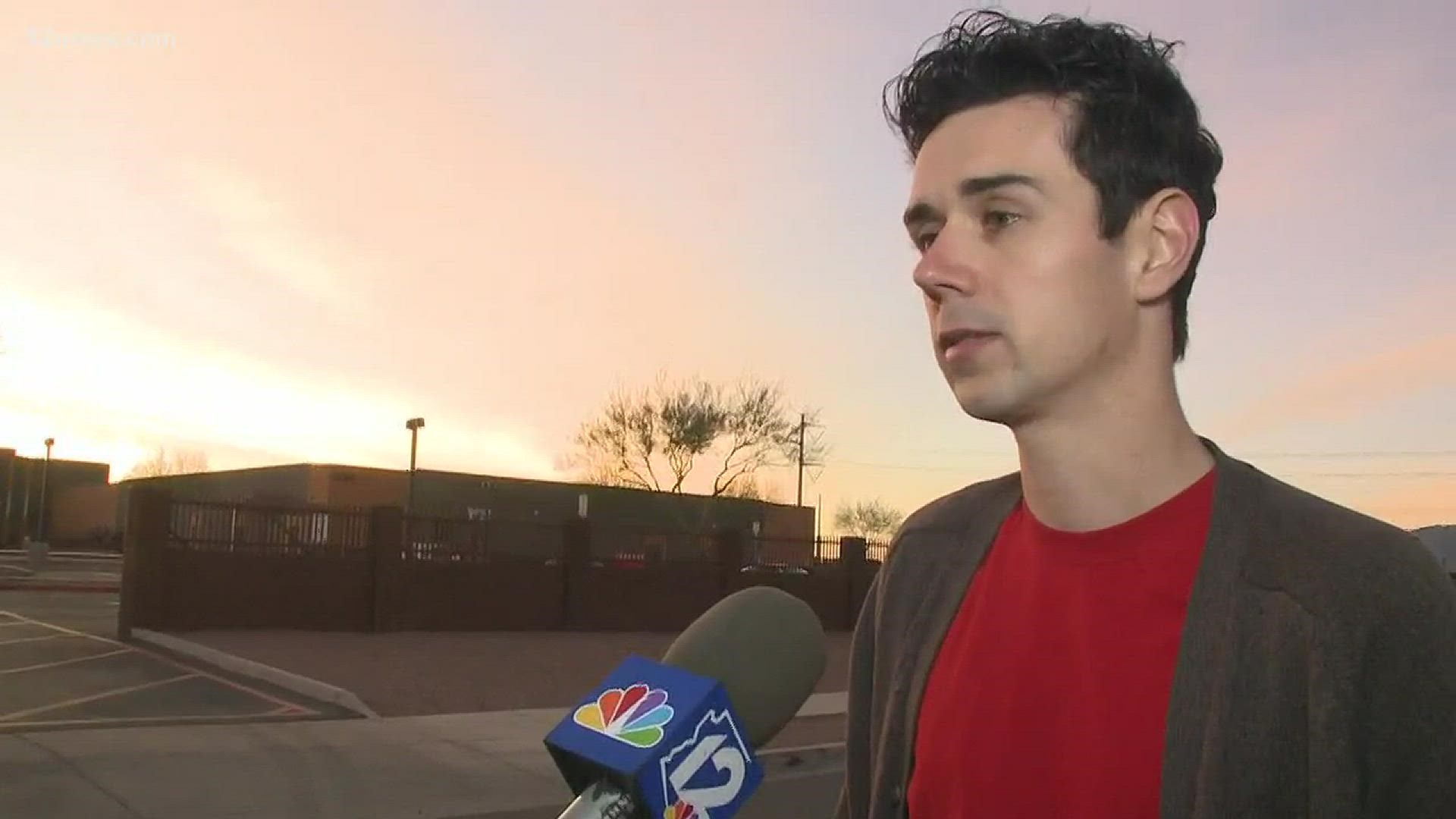When pressed with questions about Arizona’s poor public teacher salaries, Gov. Doug Ducey made two comments that 12 News verified are unsupported or simply false.
Speaking to KTAR 92.3 in November 2017, Ducey responded to a question about Arizona’s national ranking being No. 49 or No. 50 for teachers’ salary.
Ducey argued that the numbers may be skewed when cost of living is taken into account. Ducey said:
“If you index where we are with teachers right now to, to cost of living, there are people who will tell you we are at 29 right now. The way people play with statistics and numbers so they can drive their agenda is just something you have to deal with.”
The 12 News Verify team found this statement to be false.
Ducey’s office confirmed to 12 News he was referencing a finding in the Arizona Tax Research Association’s (ATRA) 2017 report on Arizona’ K-12 Finance Statistics. The statistical ranking has nothing to do with cost of living measures, but rather “per-capita income” in each state. When pressed about why Ducey couched the study in the “cost of living” category, which economists often use to examine salaries, a governor’s spokesperson, Patrick Ptak, told 12 News by email that “He (the governor) may have misspoke.”
In fact, research that accounts for cost of living places Arizona near the very bottom when it comes to teacher pay. A study last year by the Morrison Institute for Public Policy at ASU found that when adjusted for cost of living, Arizona ranks 48th in high school teacher pay and dead last in elementary teacher pay.
A new study by the Julie Ann Wrigley Global Institute of Sustainability found similar conclusions. It actually compared teacher salaries to cost of living by cities nationwide. Cities in Arizona rank last or near last in every single category.
The ATRA statistic referenced by Ducey compares teacher salaries to “per-capita personal income” of everyone living in the state working in every industry. Arizona teachers rank 28th in that category.
"It's not a cost of living adjustment but it is one way of looking at money available in our state," said Sean McCarthy, Senior Research Analyst for ATRA, which authored the report. "This is just one of many ways we look at school finance statistics. We've acknowledged our relative teacher pay ranking has declined over the last couple of decades."
McCarthy said per-capita personal income is a way to look at wealth available in the state to pay for government programs.
Dan Hunting, the senior policy analyst at the Morrison Institute, said he believes using per-capita personal income as a comparison for teacher pay is unusual.
“By almost any measure we are near the bottom unless you do this thing that ATRA has done which just really seems to distort things dramatically,” said Hunting.]
McCarthy said a different formula used by ATRA portrays a slightly better picture overall when it comes to teacher pay.
"If you look at average pay, based on a variety of sources, we're consistently right at about 43, without any adjustments at all," McCarthy said.
During the same interview on KTAR, Gov. Ducey said:
“I’ve had teachers come up, grab me by the arm and said ‘thank you.’ I said ‘what are you thanking me for?’ They’ve had a $10,000 raise. I’ve had other teachers who have not had a raise in the last three years.”
12 News found this statement to be unsupported by available evidence.
Ducey was referencing the perceived disparity of teacher raises from one school district to another. During the interview he suggested that some school district leaders could be doing a better job distributing money made available to them by Proposition 123.
So are teachers getting $10,000 raises?
12 News can’t find any evidence to support that claim. We first filed a public records request asking Gov. Ducey’s office for evidence of $10,000 raises since 2016. A spokesperson for Gov. Ducey told 12 News the governor’s office did not have any related records and suggested that 12 News check with state agencies and organizations that might track such information. 12 News contacted several school districts, The Arizona School Boards Association and The Arizona Educators Association. Representatives of all three said they were not aware of a teacher receiving such a dramatic increase in salary over the past three years.
“We have not heard of any of our member districts giving a $10,000 dollar raise,” said Chris Kotterman, director of governmental relations of the ASBA, which represents all of Arizona’s public school districts. “I would think if a school district was able to raise their teacher salaries $10,000 they would be shouting from the mountain tops about it.”
The AEA examines teacher salary records in Arizona. AEA president Joe Thomas scoffed at Ducey’s claim.
“Did he tell you about the unicorn he saw as well?” said Thomas. “I don’t mean to be too facetious. I have not met a teacher who has made a $10,000 raise who still lives in this state. I’ve talked to a teacher in California who used to teach here. I’ve talked to a teacher in New Mexico who used to teach here. They are the ones getting the $10,000 raises.”

